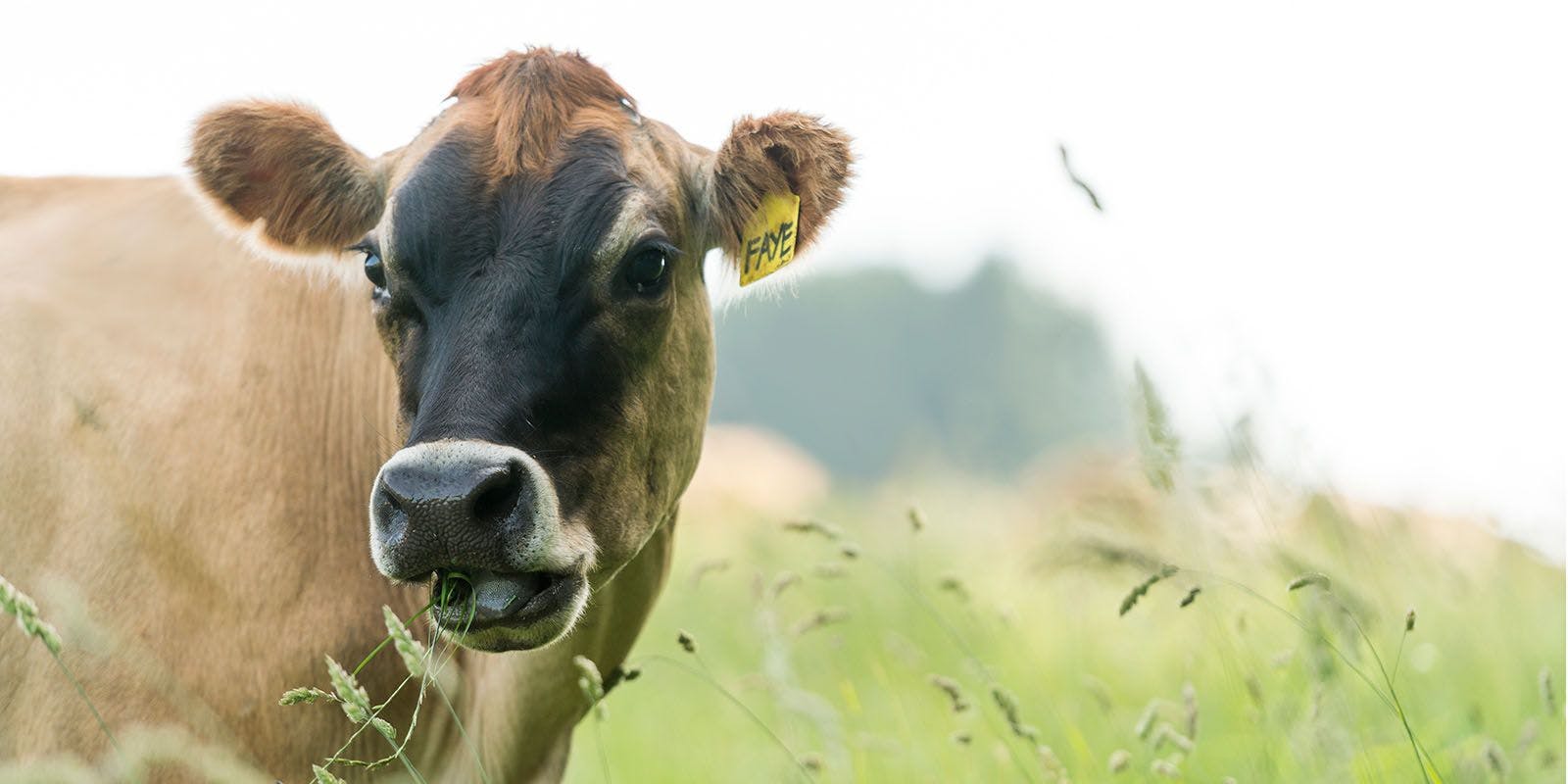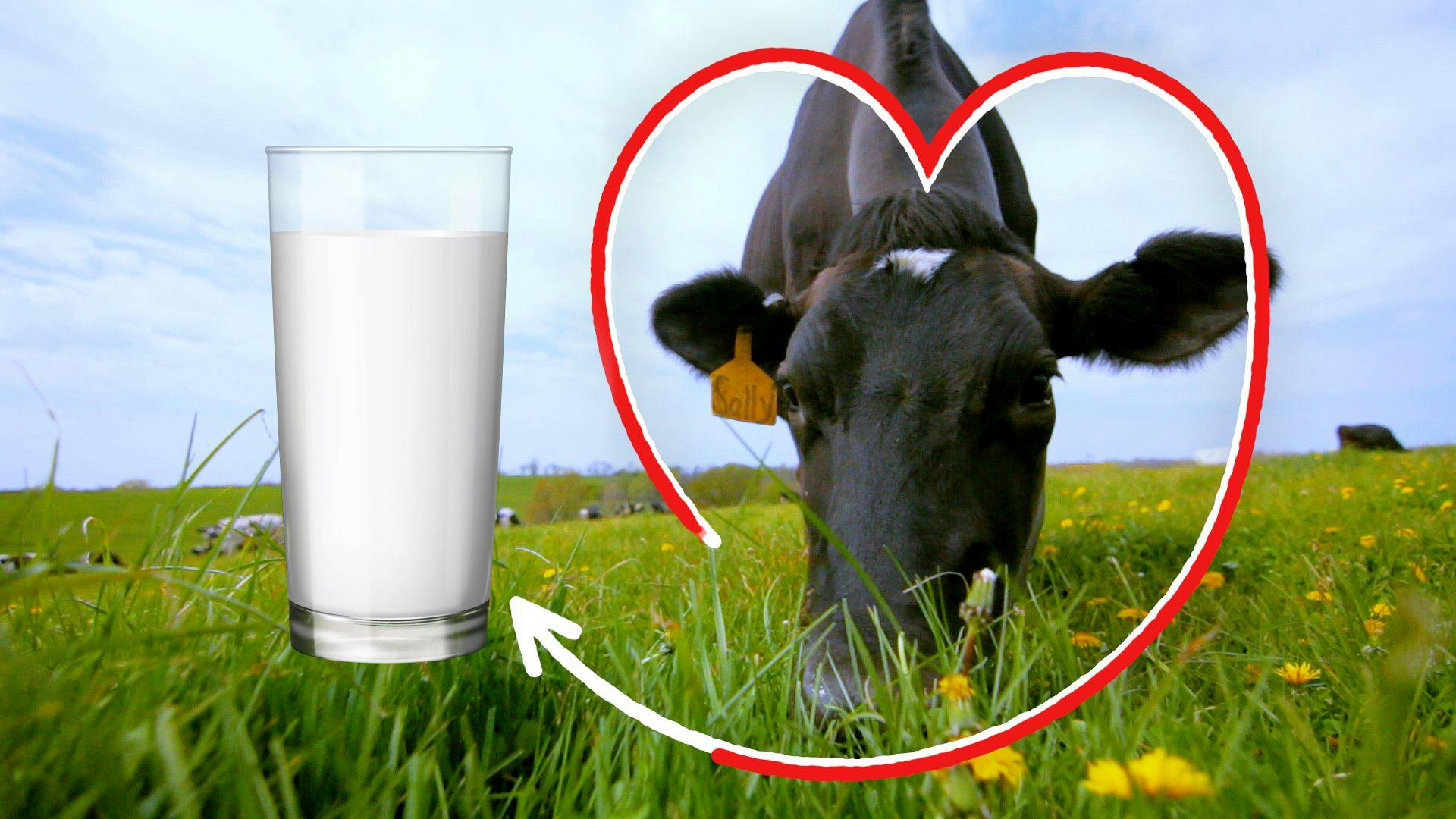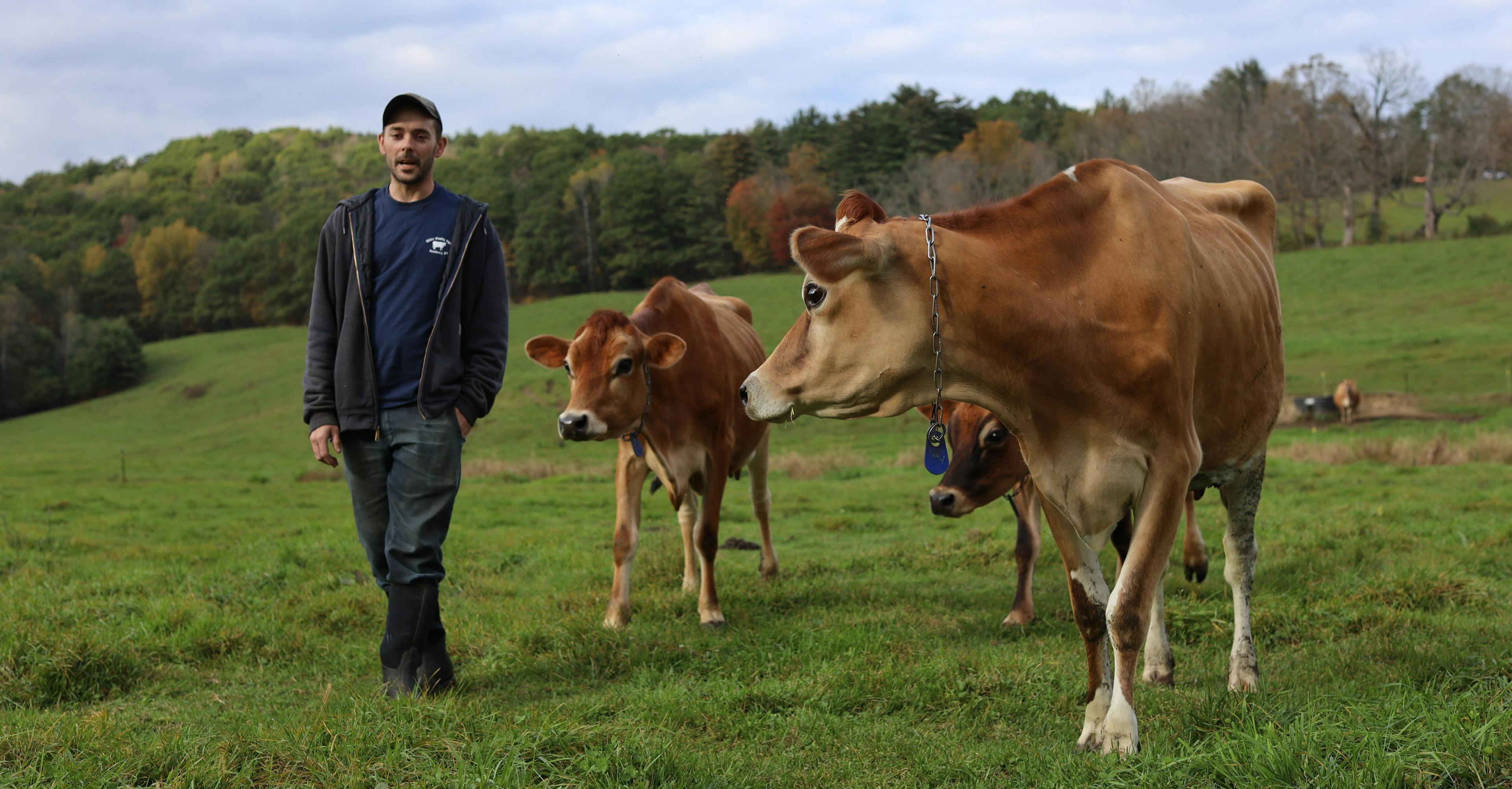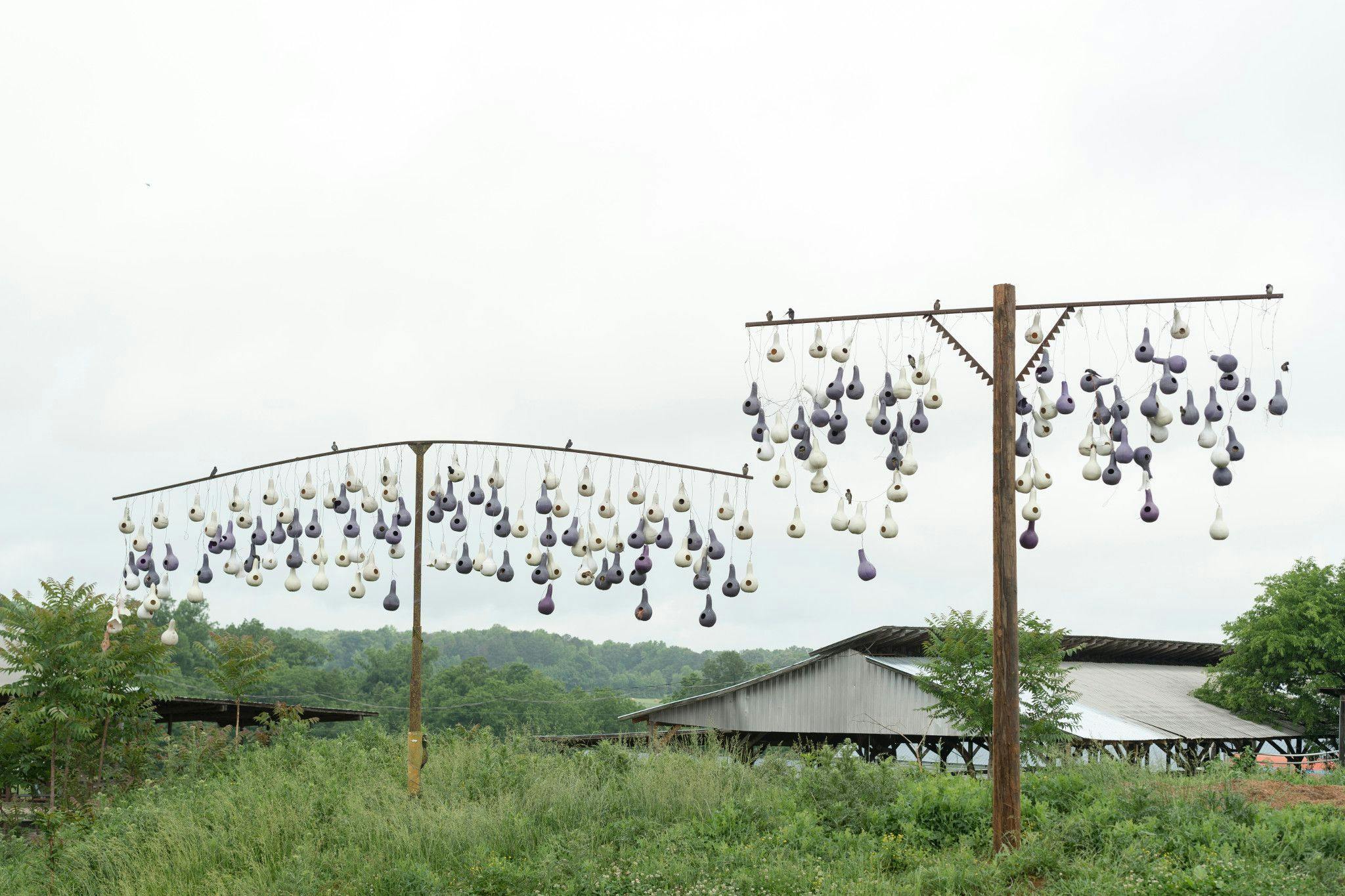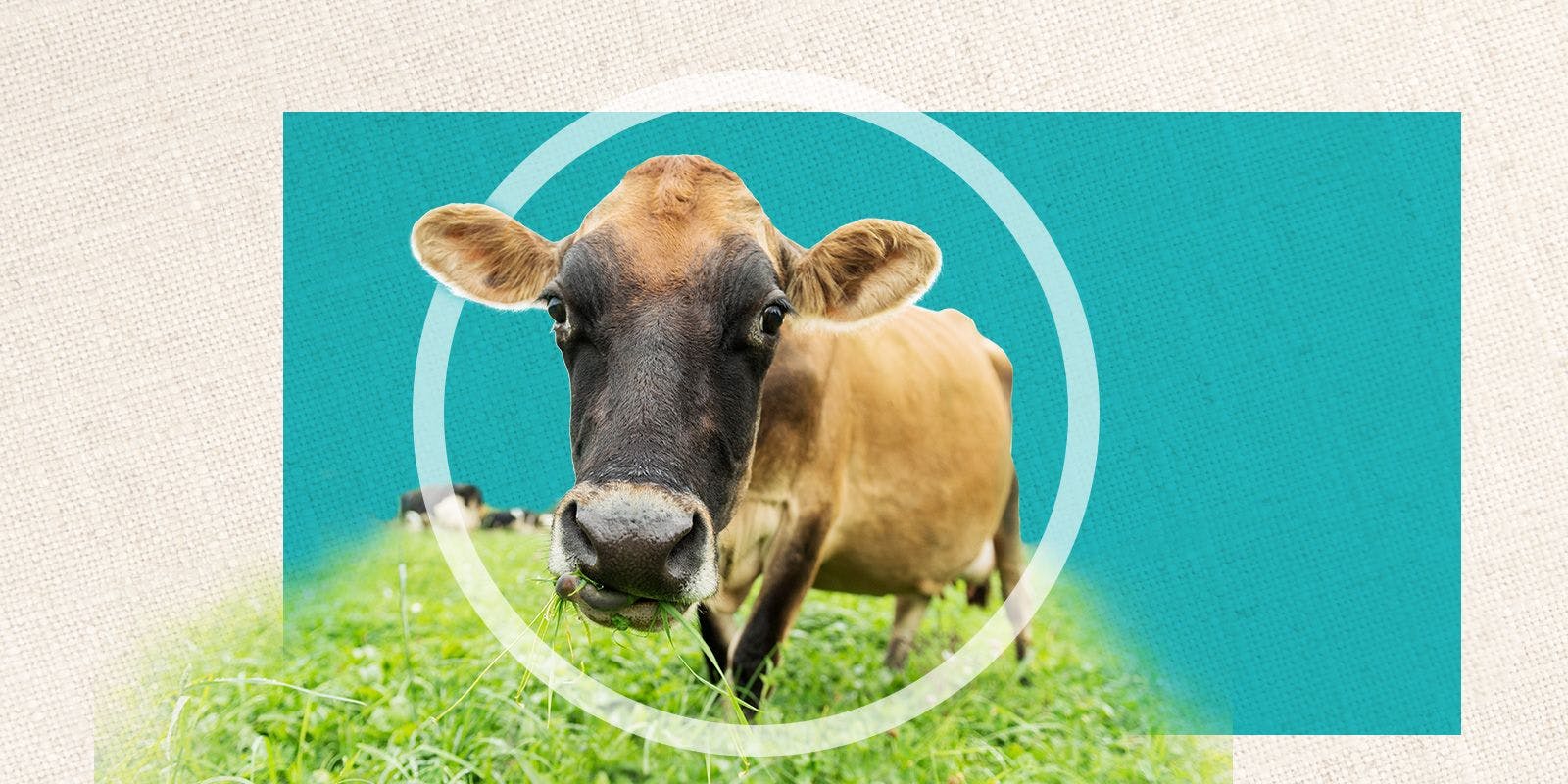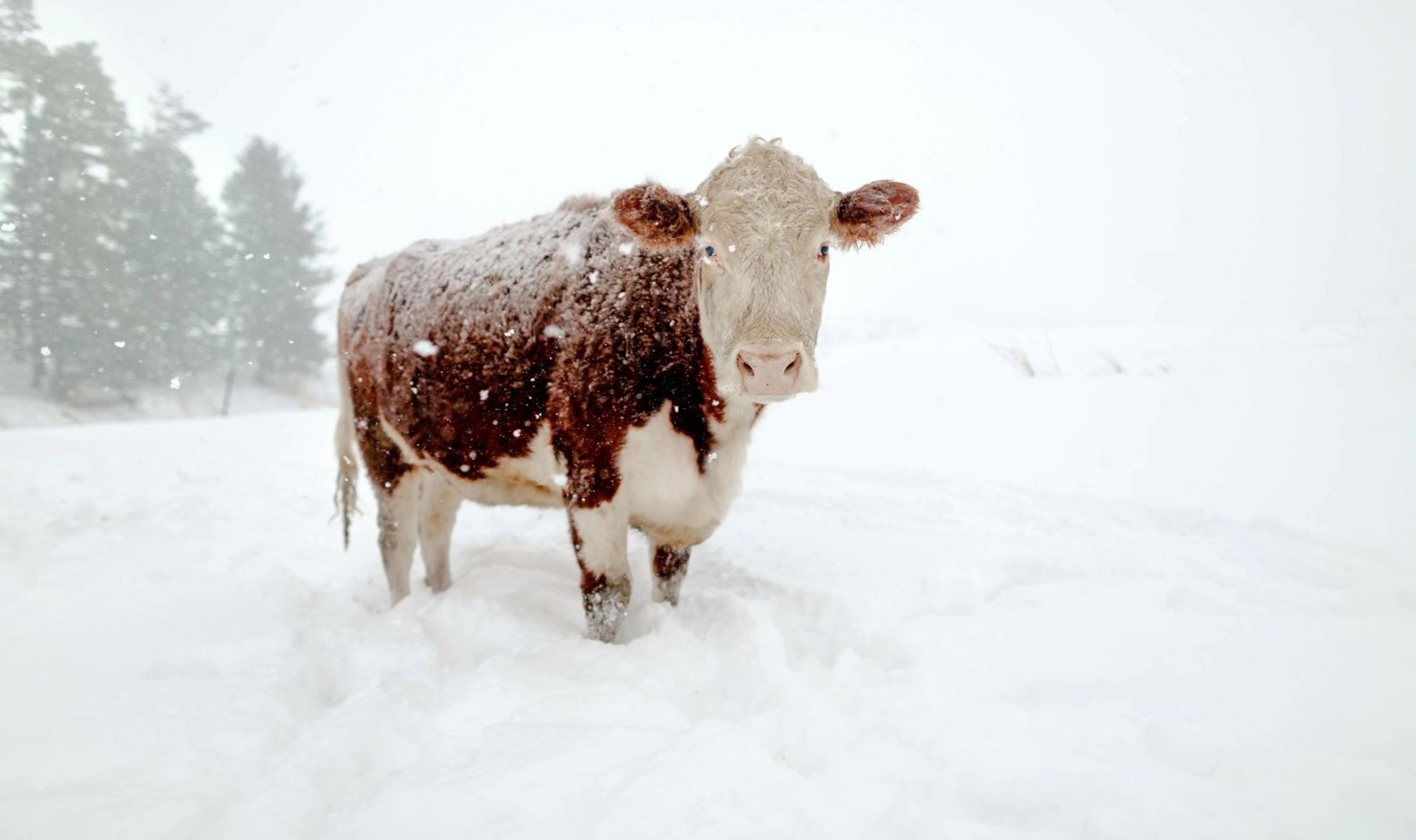
Farming
Do Cows Get Cold During the Winter?
Organic Valley farmer Gene Mohs of Minnesota may have to throw on an extra layer of clothing when he heads out the door on cold Minnesota mornings, but chances are his cows are content.
At what temperature do cows get cold? Believe it or not, cows prefer it cool — they are built for this! The ideal temperature range for dairy cattle is 25 to 65 F, according to the University of Missouri Extension. Even at temperatures of just 68 F cattle can start to feel heat stress. When temperatures dip below zero, yes, cows may get cold but Organic Valley farmers take special precautions to keep cows cozy.
How do cows stay warm? One reason cows prefer it cooler is because of all that is going on internally.
“An adult cow has a furnace inside,” said Dr. Meggan Hain, Organic Valley veterinarian. She is speaking of food that is fermenting in the rumen (the first compartment of a cow’s stomach). As the rumen breaks down forage, digestion releases gas that keeps the animal warm.
Cows also acclimate to poor conditions. In the winter, cows’ thick skin and hair is a natural insulator, like a heavy winter coat, that protects them from the bitter cold. A cow’s hair grows longer and thicker during winter weather. When it snows, the hair coat catches the snow and forms a layer that creates an air pocket between the snow and the cow’s skin. The pocket is then warmed by the cow’s core body temperature of about 101 to 102 F.
Do cows' feet get cold? Not like ours! Cows’ hooves are designed to protect their feet. “Their extremities are made to be a lot tougher than ours,” Dr. Hain said. Their toes have adapted circulation to keep them comfortable when temperatures drop.
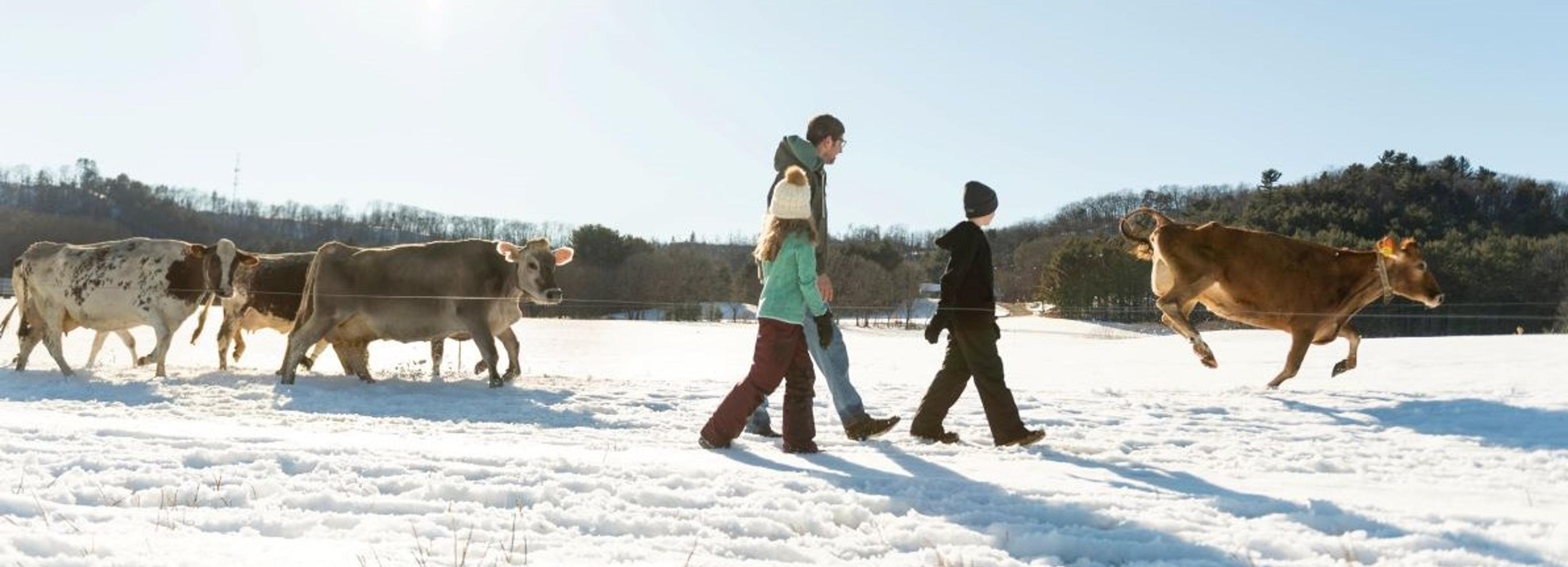
The Gearing family checks on the cows on their Wisconsin farm as the cows check on them!
Cows Have Access to Shelter
Organic Valley’s animal care standards require that cows have access to shelter. Wind breaks are important in cold climates. Though cows are used to living outdoors, they are provided shelter and can go where they please when it’s windy and wet.
“They know when they are ready to come inside,” Mohs said of his 50 cows, adding cows on his farm always have access to a shed and other areas that are protected from the wind. The cows get extra bedding, like straw, for even more comfort in cold weather to reduce cold stress.
With good body condition, a clean, dry coat, dry bedding, shelter, fresh water and good nutrition, dairy cattle can tolerate temperatures well below zero, according to the University of Minnesota Extension. Of course, that number varies depending on factors like wind chill, humidity, a cow's body condition and age. Calves have lower resistance to cold and Organic Valley farmers provide deeper bedding to help them stay warm. Sometimes calves are even given heat lamps or calf coats.
Farmers ensure the cows have enough water during the winter months even if it means heading out to break ice multiple times a day. Quality water is as important as quality feed.
All Organic Valley dairy farms provide access to the outdoors year-round. Farmers on Organic Valley's small farms keep a close eye on the herd to determine rations of the best feed for cattle in cold weather.
In winter in cold climates Organic Valley cows eat stored forages that were harvested and dried the last summer. Farmers also give cows extra rations to keep their bellies full and provide enough energy for the cows to stay warm.
Cows are not fond of extreme cold and that’s why they have the option to come inside and rest on nice warm bedding if it gets too nasty out. Hain said you can tell if they are cold by their posture. Cows are monitored for any changes in their behavior or how they look, so concerns can be addressed right away.
Farmers in cold climates may catch a chill but don’t worry, those cows you see roaming in fields of freshly fallen snow are just fine.
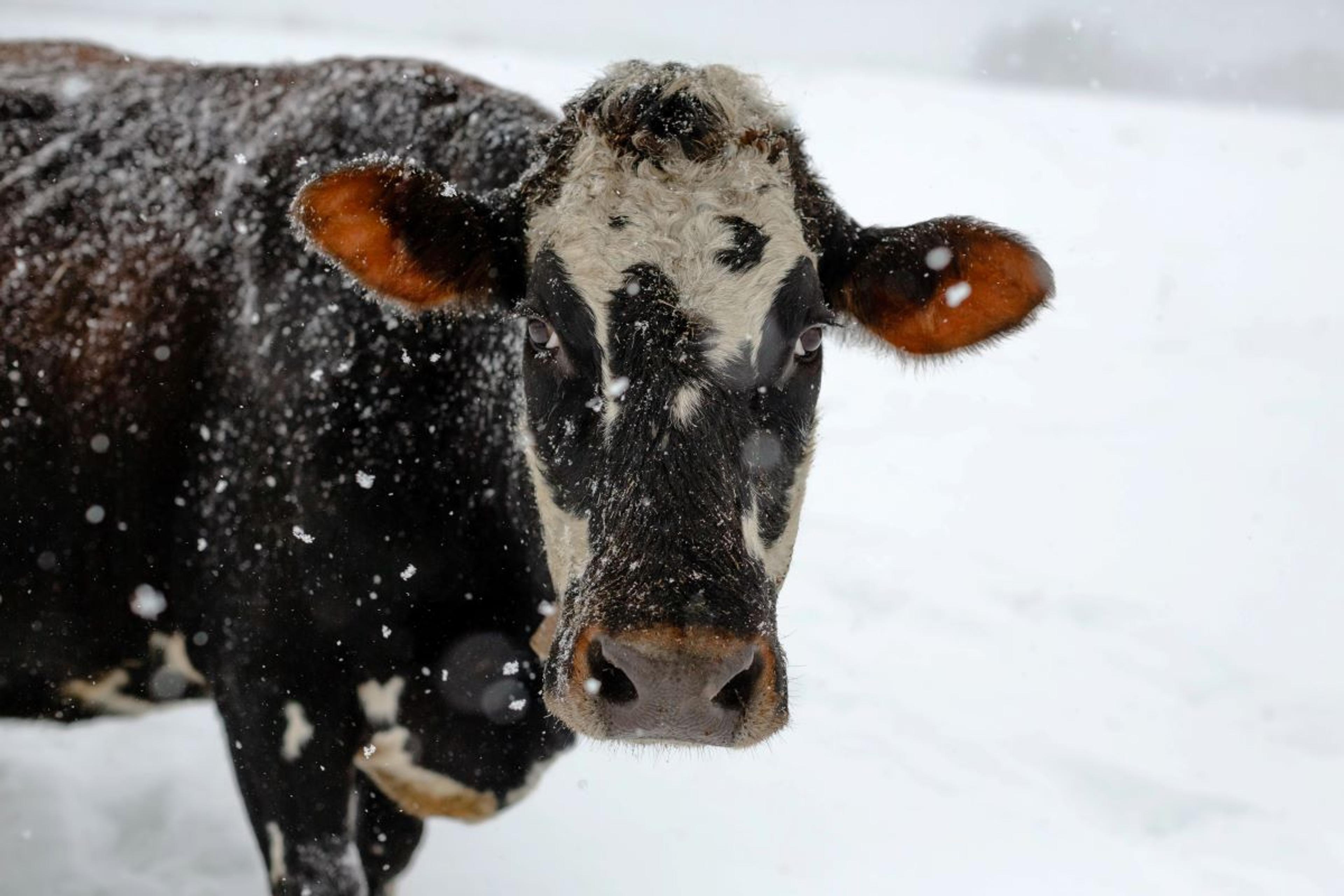
The Herd Can’t Stand The Heat!
University of Georgia dairy scientist Sha Toa knows a lot about heat stress in cows. He’s an expert — the goals of his research team are to understand how heat stress affects the cow and calf on lactation, growth, metabolism and health, and to explore the management and nutritional strategies to minimize the negative effects of heat stress.
Lactating dairy cows are especially impacted by the heat and Toa said there are a number of ways farmers keep them cool. Some farmers provide soakers (sprinklers) one or two months per year as cold water will bring heat out of the cow and a blowing fan will cause evaporative cooling. Keeping cattle cool in the deep south can be very challenging, he added. Take southern Georgia where it can be extremely warm from April through October, he said. Sometimes farmers have to work extra hard to keep barns cool in December!
Be it cold or hot, barns are designed to provide proper ventilation and many options are climate controlled, allowing for misters and fans in the summer and attachable curtains and sidewalls for the winter.
Farmers find all kinds of creative ways to care for cows. Organic Valley farmer Jordan Settlage, Ohio, made a 120-foot-long portable cattle shade so his milk cows have a place to get out of the sun on hot days.
Sun or snow, Organic Valley farmers are taking care of the animals that call their farms home. So just because you see a cow with a layer of snow on its back and their breath rising from their nostrils doesn’t mean the cow is cold and uncomfortable. If it does get too chilly, you can be sure an Organic Valley farmer is bundling up, stepping into the freezing cold and making sure the cows are content.
An antique typewriter fanatic and chicken mom who treasures time outdoors admiring all that nature has to offer, Jennifer McBride is Rootstock’s editor. McBride spent 15-plus years as a journalist and newspaper editor before finding her niche with the nation’s leading organic dairy cooperative. Contact her at Rootstock@organicvalley.com.
Related Articles
- Tags:
- animal care,
- farm labor,
- farm life















